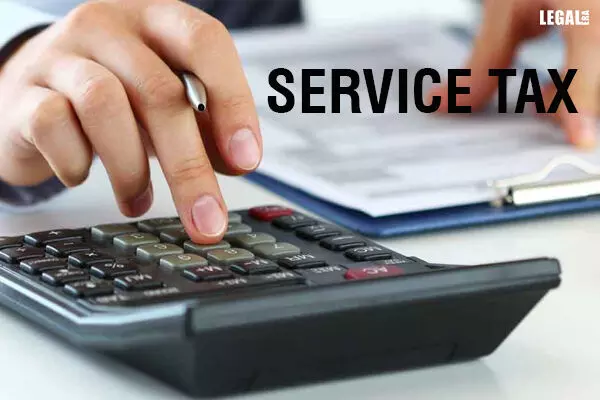- Home
- News
- Articles+
- Aerospace
- Artificial Intelligence
- Agriculture
- Alternate Dispute Resolution
- Arbitration & Mediation
- Banking and Finance
- Bankruptcy
- Book Review
- Bribery & Corruption
- Commercial Litigation
- Competition Law
- Conference Reports
- Consumer Products
- Contract
- Corporate Governance
- Corporate Law
- Covid-19
- Cryptocurrency
- Cybersecurity
- Data Protection
- Defence
- Digital Economy
- E-commerce
- Employment Law
- Energy and Natural Resources
- Entertainment and Sports Law
- Environmental Law
- Environmental, Social, and Governance
- Foreign Direct Investment
- Food and Beverage
- Gaming
- Health Care
- IBC Diaries
- In Focus
- Inclusion & Diversity
- Insurance Law
- Intellectual Property
- International Law
- IP & Tech Era
- Know the Law
- Labour Laws
- Law & Policy and Regulation
- Litigation
- Litigation Funding
- Manufacturing
- Mergers & Acquisitions
- NFTs
- Privacy
- Private Equity
- Project Finance
- Real Estate
- Risk and Compliance
- Student Corner
- Take On Board
- Tax
- Technology Media and Telecom
- Tributes
- Viewpoint
- Zoom In
- Law Firms
- In-House
- Rankings
- E-Magazine
- Legal Era TV
- Events
- Middle East
- Africa
- News
- Articles
- Aerospace
- Artificial Intelligence
- Agriculture
- Alternate Dispute Resolution
- Arbitration & Mediation
- Banking and Finance
- Bankruptcy
- Book Review
- Bribery & Corruption
- Commercial Litigation
- Competition Law
- Conference Reports
- Consumer Products
- Contract
- Corporate Governance
- Corporate Law
- Covid-19
- Cryptocurrency
- Cybersecurity
- Data Protection
- Defence
- Digital Economy
- E-commerce
- Employment Law
- Energy and Natural Resources
- Entertainment and Sports Law
- Environmental Law
- Environmental, Social, and Governance
- Foreign Direct Investment
- Food and Beverage
- Gaming
- Health Care
- IBC Diaries
- In Focus
- Inclusion & Diversity
- Insurance Law
- Intellectual Property
- International Law
- IP & Tech Era
- Know the Law
- Labour Laws
- Law & Policy and Regulation
- Litigation
- Litigation Funding
- Manufacturing
- Mergers & Acquisitions
- NFTs
- Privacy
- Private Equity
- Project Finance
- Real Estate
- Risk and Compliance
- Student Corner
- Take On Board
- Tax
- Technology Media and Telecom
- Tributes
- Viewpoint
- Zoom In
- Law Firms
- In-House
- Rankings
- E-Magazine
- Legal Era TV
- Events
- Middle East
- Africa
CESTAT Classifies Data Manipulation Facility as 'Information Technology Software Service' under Finance Act

CESTAT Classifies Data Manipulation Facility as 'Information Technology Software Service' under Finance Act
Holds service tax liability beginning from 16 May 2008
The Chennai Bench of the Customs, Excise and Service Tax Appellate Tribunal (CESTAT) has ruled that services provided by the appellant (involving data manipulation through a foreign-installed common server and accessed via private international leased lines and SAP software), are to be classified as 'Information Technology Software Service’ under Section 65(53a) of the Finance Act, 1994.
However, it clarified that the liability for service tax applied only from 16 May 2008 and was not applicable before that date.
The appellant, Intimate Fashions Pvt. Ltd was investigated by the central excise officers for suspected non-payment of service tax on payments made to a foreign company.
During the investigation, it was discovered that a common server was installed at the premises of Bodyline Private Limited, Sri Lanka (BPLSL), which the appellant accessed to retrieve data through private international lease lines using SAP software.
The Income Tax Department contended that the activities fell under the category of 'Computer Network Services' or 'Online Information and Database Access or Retrieval Service', subject to service tax under reverse charge mechanism.
On the other hand, the appellant argued that the activities should only be classified as 'Information Technology Services' introduced after 16 May 2008, and that it was not liable for service tax prior to that date.
However, the Revenue Department contended that the entire service activity, including server installation, SAP software implementation, and data manipulation through private international leased lines, should be considered as one service falling under 'Online Information and Data Access or Retrieval Service.'
After adjudication, it demanded a service tax of Rs.83,41,013 from the appellant under the category of 'Online Information and Database Access or Retrieval Service'.
The Bench observed that ‘Computer Network Services’ meant the inter connection of one or more computers and ‘Online Information and Data Base Access or Retrieval or both in Electronic form through Computer Network’ related to providing data or information, retrievable or otherwise, to any person, in electronic form through a computer network.
Whereas ‘Information Technology Software’ service covered the manipulation or interactivity provided to a user on any representation of instruction, data sound, or image including source code or object code by machines of a computer or an automatic data processing machine.
The tribunal noted that the appellant's activity primarily involved data manipulation rather than just connecting computers or accessing data. The use of SAP software facilitated various functions, including data entry, manipulation, and retrieval for accounting and other purposes.
It disagreed with the classification of the disputed service as a Computer Network Service. Instead, it deemed the services appropriately classified as 'Information Technology Software Services,' a category introduced from 16 May 2008.
Thus, the Bench stated that services provided by the appellant (sourced from abroad and subject to duty under the reverse charge mechanism), were classified under 'Information Technology Software Services’ according to Section 65(53a). It constituted a taxable service under the Finance Act.



